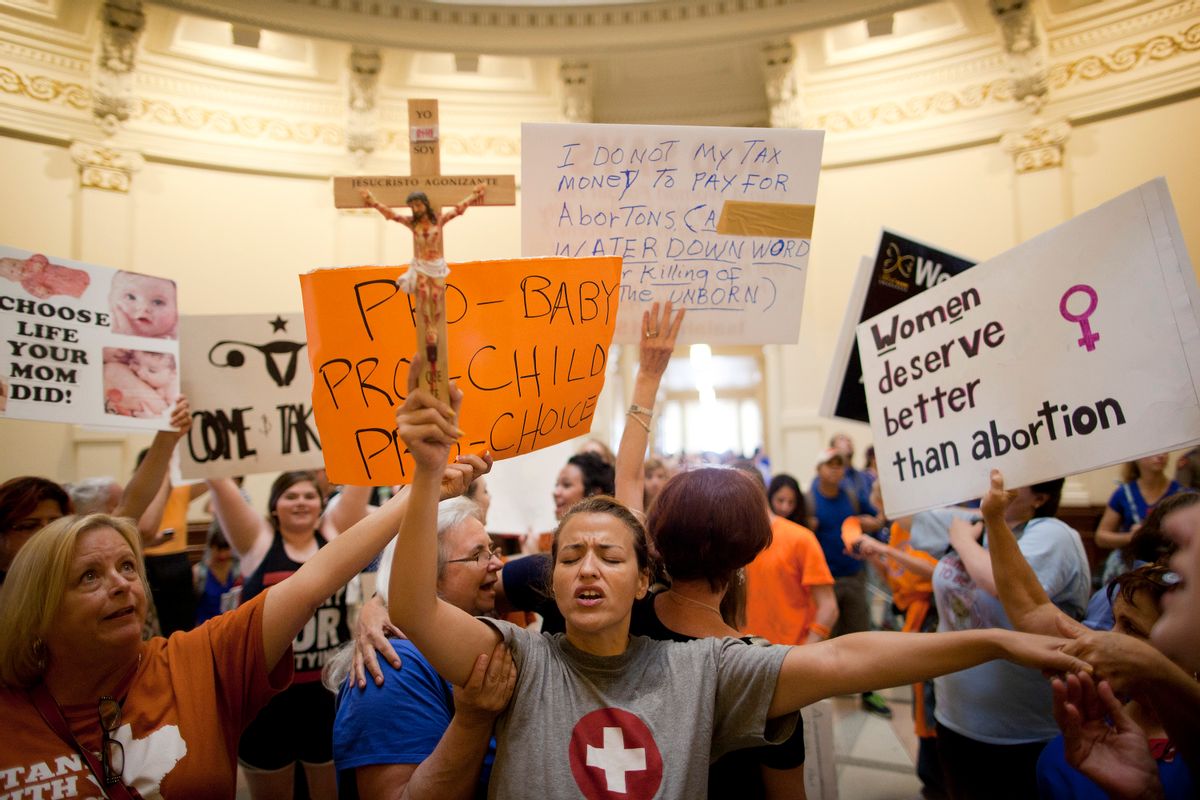Less than 24 hours before two major provisions of Texas' sweeping new abortion law were set to go into effect, a federal judge permanently struck down a provision mandating doctors obtain admitting privileges at local hospitals. District Judge Lee Yeakel declared in his Monday ruling that such a requirement places an undue burden on women seeking an abortion.
"The admitting-privileges provision of House Bill 2 does not bear a rational relationship to the legitimate right of the state in preserving and promoting fetal life or a woman's health and, in any event, places a substantial obstacle in the path of a woman seeking an abortion of a nonviable fetus and is thus an undue burden to her," Yeakel wrote.
Had it gone into effect, the provision requiring abortion providers obtain hospital admitting privileges would have forced nearly one-third of abortion providers in the state to close their doors, according to research from the Texas Policy Evaluation Project at the University of Texas.
But the ruling is an uneven victory for women's ability to access abortion in the state.
Yeakel let stand a provision that severely restricts the use of medication abortion, though he noted in his ruling that the law cannot be enforced in cases in which the life or health of the woman is at risk.
"The medication abortion provision may not be enforced against any physician who determines, in appropriate medical judgment, to perform the medication-abortion using off-label protocol for the preservation of the life or health of the mother," he wrote. Such a provision did not constitute an undue burden, Yeakel added, though the FDA protocol is "assuredly more imposing and unpleasant for the woman, requiring at least one additional visit to a clinic and allowing less control over the timing and convenience of the medically induced miscarriage.”
Medical experts testified last week that limits on medication abortions require physicians to ignore medical best-practices in favor of outdated Food and Drug Administration guidelines, increasing the risk of complications. According to data from the Guttmacher Institute, one-quarter of abortions before nine weeks are medication abortions.
"Nearly 40 percent of the women we serve at Whole Woman's Health choose medication abortion and now Texas is preventing these women from the advances in medical practice that other women across the United States will be able to access," Amy Hagstrom Miller, president of Whole Woman's Health, said in a statement. "These restrictions are not based on sound medical practice."
“Today’s decision has averted a catastrophic health crisis for women across the state of Texas,” Nancy Northup, president and CEO of the Center for Reproductive Rights, said in a statement. “Politicians, not doctors, pushed for both of these unconstitutional restrictions -- despite the best medical standards for women’s health care. We are committed to standing with Texas health care providers and our partners in taking every necessary step ensure all women in Texas have the same rights and access to essential health care as women living in other states.”
The state plans to appeal the ruling.

Shares